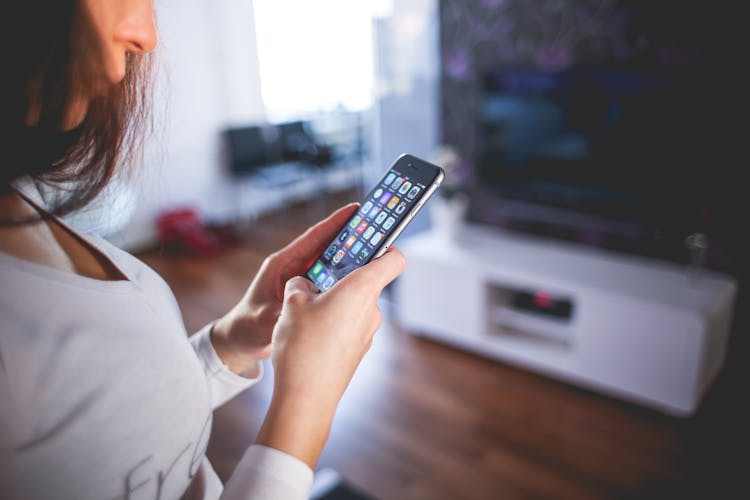All Categories
Featured
Table of Contents
TLDR Summary
- 👩💻 Digital addiction can lead to increased stress and anxiety.
- 😴 Disconnecting improves sleep quality and well-being.
- 🤝 Reduces social isolation, enhancing face-to-face communication.
- 📅 Setting clear goals can improve the success of your digital detox.
The Impact of Technology Overload on Mental Health
In today's hyperconnected world, the incessant buzz of notifications and the pressure to be perpetually available can lead to heightened stress and anxiety levels. Studies indicate that the inability to detach from digital devices creates a sensation of being perpetually "on edge," affecting not just mental but also physical well-being. According to a study published on digital addiction, individuals often experience a spike in anxiety symptoms associated with this continuous connection to technology.
Moreover, the allure of digital devices often disrupts sleep patterns. Research shows that screens emit blue light, which suppresses melatonin production, leading to disrupted sleep cycles. A report from the Sleep Foundation highlights that 90% of people use devices at least a few times a week during the hour before bed, which correlates strongly with sleep difficulties.
Equally concerning are the feelings of inadequacy stemming from social media use. Platforms like Instagram and Facebook often portray idealized lifestyles, prompting users to engage in harmful comparisons that can lead to FOMO (Fear of Missing Out). The constant barrage of curated images can erode self-esteem, leading to feelings of inadequacy and depression, something that many clinical studies have documented.
Finally, a detrimental effect of our digital dependency is the reduced attention span. With constant notifications and multitasking, focusing on a single task has become increasingly difficult. Research shows that the average attention span has decreased significantly in recent years, with some studies suggesting a drop from 12 seconds to 8 seconds! This can hinder productivity and personal satisfaction, as the art of deep focus becomes more challenging to achieve.
The Mental Health Gains from Reducing Screen Time
Taking a step back from screens can initiate a cascade of positive mental health benefits. Firstly, enhanced well-being is often reported among individuals who engage in digital detoxes. Less digital clutter leads to lower stress levels and improves emotional stability. This enhanced state of mind paves the way for more proactive and fulfilling daily experiences.
Improved sleep quality is another significant benefit of disconnecting. Individuals who practice digital detox often find it easier to wind down at night, leading to more restful and restorative sleep. Better sleep extends beyond mere quantity; it impacts overall mental performance, mood, and emotional regulation.
Additionally, reducing screen time leads to a greater emphasis on face-to-face interactions, which can foster deeper connections and reduce feelings of social isolation. Engaging with friends and family directly strengthens relationships and reinforces emotional bonds that digital communication often fails to capture.
Moreover, an unexpected benefit of unplugging is an enhancement in face-to-face communication skills. As people become less reliant on texting and online interaction, they rediscover the nuances of in-person communication. This includes improving skills such as reading body language and engaging in meaningful conversations, which are essential for creating lasting relationships.
Effective Techniques for Digital Detox
To embark on a successful digital detox, setting clear and achievable goals is essential. Identify specific interests you wish to pursue during your detox — whether that be enhancing personal relationships, boosting your productivity, or improving sleep quality. Clearly defined objectives will keep you motivated and focused. Consider reading This informative book provides a plethora of insights and guidance.
For those who are unsure about how to start, beginning with a short detox period can be helpful. Perhaps commit to a screen-free weekend or allocate a few hours each day for unplugging. Small steps make the detox more manageable and allow you to gauge how it affects your mood and interactions.
Planning screen-free activities can replace the time you would typically spend online. Consider reading engaging books, enjoying outdoor activities, or practicing creative hobbies that stimulate your mind without the use of screens. For a structured approach to this, this workbook can be a great resource.
Finally, establishing a calming environment can enhance your detox experience. Declutter your living space and incorporate relaxing techniques into your daily routine, such as meditation or yoga. Building an environment conducive to relaxation maximizes your chances of benefiting from this digital break.
What are the signs that someone needs a digital detox?
How long should a digital detox last for effective results?
Key Takeaways
- 🧠 Digital detox enhances emotional well-being and reduces anxiety.
- 💤 Improved sleep patterns are achievable through reduced screen time.
- 🤗 Social connections deepen when reducing reliance on technology.
- 🔑 Setting clear goals is crucial for a successful detox experience.

Mastering the Art of Unplugging: Your Guide to Effective Digital Detox
Latest Posts
The Art of Layering for Winter Hiking
Essential Tips for an Impactful Resume
Exploring the Effects of Digital Detox on Mental Health